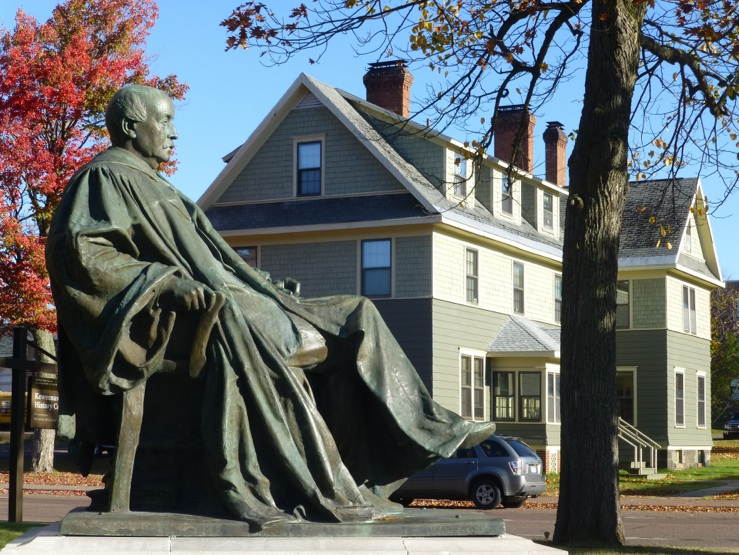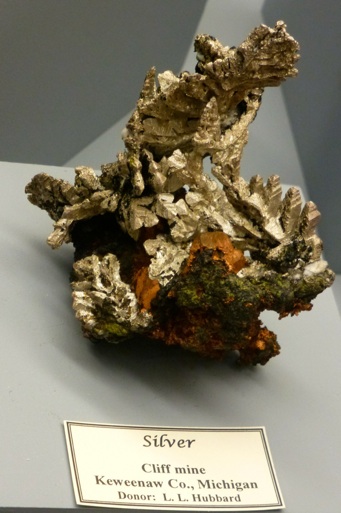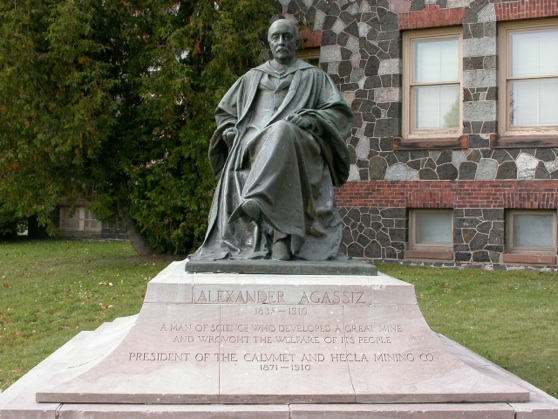In 1864, Edwin J. Hulbert discovered a copper-bearing section of what was to become known as the Calumet Conglomerate. The find was in Houghton County, Michigan, between the rich Cliff mine to the northeast, and the copper mines of Portage Lake to the southwest. Hulbert formed the Calumet Company in 1865, with Boston investors. The company spun off the Hecla Company the following year, and assigned shares in the new company to Calumet shareholders. Hulbert was a major shareholder in both companies, and was in charge of mine operations. But despite the rich ore, Hulbert did not have the practical knowledge to dig out the ore, crush it, and concentrate it. Frustrated with Hulbert’s lack of success, the company sent Alexander Agassiz, son of famed geologist Louis Agassiz to Michigan to run the mine. The town of Red Jacket (now named Calumet) formed next to the mine.
Under Agassiz’ expert management, the Hecla Company paid its first dividend in 1868, and the Calumet Company began paying dividends in 1869. The two companies merged in May 1871 to form the Calumet & Hecla Mining Company, with Quincy Adams Shaw as its first president. In August of that year, Shaw "retired" to the board of directors and Agassiz became president, a position he held until his death.
Calumet and Hecla built itself into a copper mining colossus. From 1868 through 1886, it was the leading copper producer in the United States, and from 1869 through 1876, the leading copper producer in the world. From 1871 through 1880, Calumet and Hecla turned out more than half the copper produced in the United States. In each year, save one, between 1870 and 1901, Calumet and Hecla mined most of the copper produced in the Michigan copper district.
















